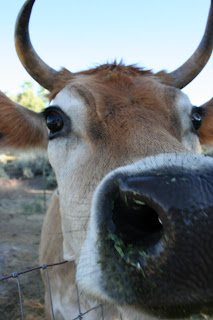
When Rob and I started dreaming of the farm we did a lot of research and reading. We decided our homestead would focus on heritage livestock. What is heritage livestock you ask? Well the American Livestock Conservancy defines heritage livestock as breeds that are threatened. Due to changes in modern agriculture practice, modern food production now favors the use of a few highly specialized breeds selected for the ability to produce lots of milk or eggs, gain weight quickly, or yield meat within confinement. Many traditional livestock breeds have lost popularity and are threatened with extinction. These heritage breeds are an important part of the American agricultural inheritance. Not only do they remind us of our past, they are also an important resource for our future.
For a smaller farm like ours they are especially fitting because heritage animals have traits that make them particularly well-adapted to local environment. Heritage breeds are generally better adapted to withstand disease, parasites and harsh environmental conditions, their bodies are also suited to living on pasture.
The benefits of heritage breeds are many, but the drawback is the expense and difficulty of obtaining breeding stock. Due to the fact the animals are endangered finding a suitable breeding pair can take years and the animals are usually located across country.
We have been lucky to find Jacob Sheep locally and also find our Myotonic Goats in California. Heritage cows and pigs are still not in our reach but we have added a few "practice" animals to our little farm. This way we can work out the kinks before we have the countries livestock genetic pool in our hands. Bacon and Sausage, the pigs, were slaughtered already. And we have just recently picked up some cattle at auction and through our friends at the feed store. Let the practice begin....













0 comments:
Post a Comment